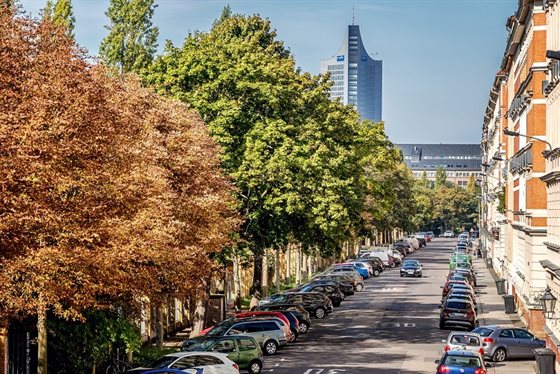Daily contact with trees in the street may significantly reduce the risk of depression and the need for antidepressants, according to new research by a De Montfort University Leicester (DMU) academic.
With multiple studies already available on the health benefits of green space, Psychology Lecturer Dr Melissa Marselle wanted to find out what it was about green space that really influenced mental health and how the effect could be produced closer to home.

Recently published in the journal Scientific Reports, Dr Marselle’s research showed that a high number of street trees close to the home was related to lower numbers of prescriptions for antidepressants in residents living nearby.
Her data also showed that the gap in prescription numbers between houses of higher and lower incomes also fell nearer urban trees.
Using data specifically about where people lived, number of street trees around their houses at different distances and a health data set from University of Leipzig, including barcoded medication, Dr Marselle was able to identify the number of antidepressants being taken alongside the number of street trees in the area.
READ DR MARSELLE'S FULL ARTICLE
While the types of trees made no difference, the number of trees certainly had an impact on mental health and prescriptions.
She explained: “Our finding suggests that street trees, a small scale, publicly accessible form of urban greenspace, can help close the gap in health inequalities.
“Depression is on the rise, now more than ever. Street tree planting in residential areas of cities may be a nature-based solution to reduce the risk of depression with added benefits of also addressing climate change and biodiversity loss.”

Dr Marselle believes her research should prompt local councils to plant and install trees to urban areas as a way to improve mental health and reduce social inequalities in certain areas.
And it’s not only human health which could benefit, Dr Marselle argues, with the positive effects trees have on climate mitigation in urban areas.
She said: “We propose that adding street trees in residential urban areas may promote mental health, reduce social inequalities and contribute to climate change mitigation and biodiversity conservation.
“Most planning guidance for urban greenspace is mostly based on purposeful visits for recreation, we suggest that ‘unintentional’ daily contact with nature through street trees may reach more people.
“Street trees should be planted equally throughout a city to ensure those who are socially disadvantaged have access to nearby nature for their mental health.”
Posted on Thursday 14 January 2021